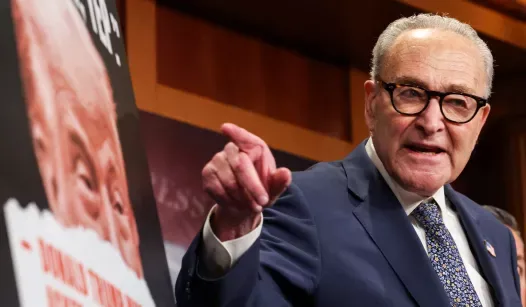The recent government shutdown has sparked intense debate and frustration across the United States. Many are left wondering about the underlying motivations and implications of such a political maneuver. While opinions vary widely, a significant narrative has emerged that suggests the shutdown was less about policy and more about personal animosities, particularly towards former President Donald Trump.
At its core, the shutdown serves as a stark reminder of the deep divisions within American politics. For many progressives, the shutdown represented an opportunity to express their long-standing grievances against Trump’s administration and its policies. This sentiment is not merely a reflection of partisan rivalry; it underscores a broader issue of governance and the challenges of bipartisan cooperation in a polarized political landscape.
Critics argue that the shutdown was not only unnecessary but also detrimental to the functioning of government. Essential services were disrupted, federal employees faced unpaid leave, and the public’s trust in political institutions eroded further. This raises the question: was the shutdown a strategic move, or did it simply reflect a failure to engage in constructive dialogue?
The motivations behind the shutdown are complex. For some, it was a tactical decision aimed at leveraging political power, while for others, it was a manifestation of deeper ideological conflicts. Progressives, in particular, have been vocal about their disdain for Trump’s policies, viewing the shutdown as a chance to resist what they perceive as harmful governance. However, this approach raises concerns about the effectiveness of using government shutdowns as a tool for political expression.
Moreover, the shutdown highlights the challenges of addressing critical issues facing the nation, such as healthcare, immigration reform, and economic inequality. Instead of collaborating on solutions, political leaders often resort to tactics that exacerbate divisions and hinder progress. The public is left to navigate the fallout, which can lead to disillusionment and apathy towards the political process.
As we reflect on the implications of the recent shutdown, it is crucial to consider the broader context of American politics. The increasing tendency to prioritize political vendettas over constructive governance poses a significant threat to the democratic process. Citizens deserve a government that operates efficiently and effectively, one that prioritizes the needs of the populace rather than engaging in partisan battles.
Moving forward, it is essential for political leaders to seek common ground and engage in meaningful dialogue. The challenges facing the nation require collaboration and a willingness to compromise. While disagreements are inevitable in a diverse society, the focus should be on finding solutions that benefit all Americans, rather than allowing personal animosities to dictate the course of governance.
In conclusion, the recent government shutdown serves as a critical reminder of the need for a more constructive approach to politics. As citizens, it is vital to hold our leaders accountable and demand a political climate that fosters cooperation and progress. By prioritizing the needs of the nation over individual grievances, we can work towards a more effective and unified government that truly serves the interests of all Americans.
